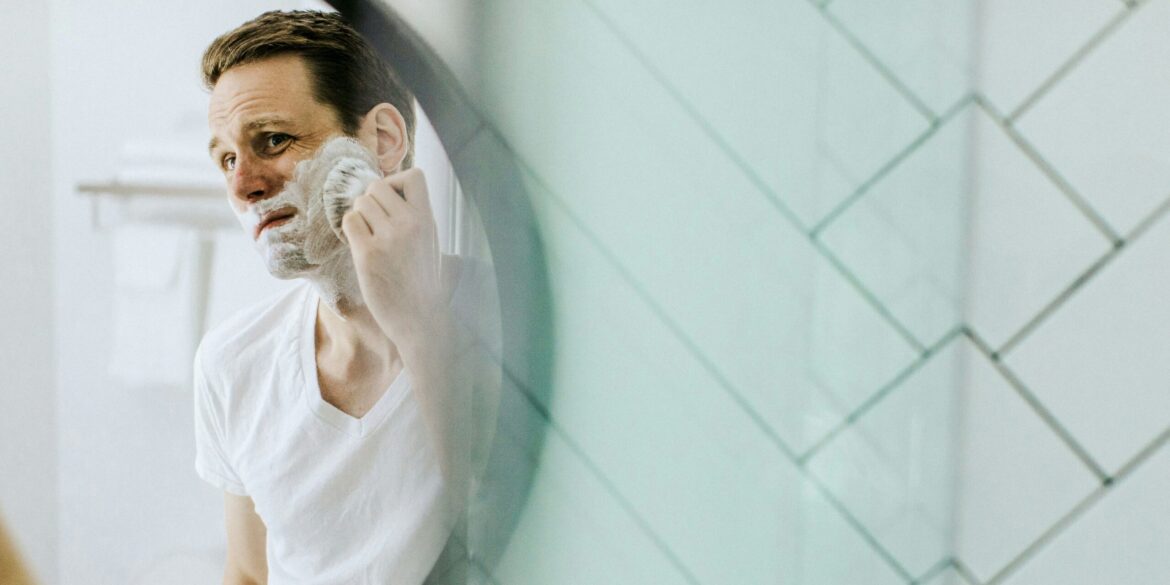The men’s grooming industry is undergoing a dramatic shift—one that reflects deeper cultural changes in how modern men perceive self-care. No longer driven purely by aspirational branding or celebrity endorsements, the market has pivoted toward minimalism, ingredient transparency, and practical product offerings. The narrative has shifted from flash to function, and it’s reshaping everything from what’s on the shelf to how men engage with their personal grooming routines.
In recent years, consumer trust in beauty and grooming products has become closely tied to ingredient transparency. According to several market trend analyses, men are increasingly inspecting labels and avoiding harmful or synthetic additives. Products free from parabens, sulfates, synthetic fragrances, and phthalates are now sought after—not just for skin safety, but also for ethical reasons like environmental sustainability. Brands that disclose their full ingredient lists, emphasize dermatologist-tested claims, and use sustainably sourced, plant-based materials are thriving in this landscape.
This pivot toward ingredient honesty isn’t just a marketing tactic—it reflects a broader societal trend toward conscious consumerism. From food to fashion to skincare, modern buyers—especially millennials and Gen Z—demand products that align with their values. In the grooming category, this has led to a surge in demand for “clean-label” items, and brands have responded accordingly. Emerging players and legacy companies alike are rebranding or reformulating their lines to meet these expectations.
Meanwhile, practicality has become king. Multipurpose grooming essentials now dominate retail spaces and online carts alike. Products like moisturizer with built-in SPF, shampoo-and-conditioner combos, and all-in-one facial cleansers are appealing to men who want streamlined routines. This demand for simplicity is particularly strong among younger men who are just beginning to engage with skincare or who view grooming not as vanity but as a manageable aspect of health and wellness.
Affordable, simplified grooming kits have gained significant traction in 2024 and into 2025. These all-in-one bundles—typically under $30—combine basic essentials like a cleanser, moisturizer, SPF, and deodorant. They’re often marketed as starter packs for men who are new to grooming or who want a no-fuss routine. Retailers such as Target and Marks & Spencer have capitalized on this trend by offering curated, gender-neutral skincare sets designed to demystify grooming for first-time users. The affordability factor is crucial in today’s inflation-aware market, particularly for Gen Z and younger millennials facing tighter budgets.
The minimalist grooming trend has also dovetailed with broader wellness conversations—especially those concerning mental health. Self-care, once viewed as indulgent or even frivolous for men, is now seen as an important component of psychological well-being. This cultural shift has been echoed in marketing campaigns that focus less on the glamour of skincare and more on the comfort, practicality, and restorative nature of these routines.
Interestingly, even celebrities and influencers are embracing this no-frills approach. Public figures who once fronted extravagant grooming campaigns are now turning toward authenticity and routine. Actors like Chris Evans and athletes such as Lewis Hamilton have publicly endorsed simplified skincare regimens that prioritize hydration, sun protection, and stress reduction. This marks a departure from the days when male grooming was all about luxury and status—now it’s about feeling good and maintaining healthy skin.
Industry insiders also note that the rise of minimalist grooming reflects changes in where and how men shop. Online-first brands like Oars + Alps and Every Man Jack, which offer direct-to-consumer models with ingredient-focused transparency, have outperformed expectations. Even major retailers are updating store layouts and signage to make clean-label men’s products more visible and less intimidating.
A notable example is Oar & Alps, which continues to grow its loyal base by offering products that are not only clean and effective but also visually aligned with minimalist design. Their straightforward packaging and accessible price point appeal to a demographic that wants quality without confusion or gimmicks. The brand has become symbolic of a larger shift—where form follows function, and skincare is a tool rather than a trophy.
Behind this market evolution lies a growing cultural recognition that masculinity is no longer defined by stoicism or disinterest in appearance. Today’s male consumers are embracing routines that support both physical and emotional well-being, and grooming is now being seen as a form of empowerment rather than excess.
The clean grooming movement isn’t a passing phase—it’s a reflection of lasting changes in consumer expectations, health awareness, and societal values. And as more men adopt these simplified, purpose-driven approaches to self-care, the industry will likely continue to innovate around clarity, transparency, and accessibility.

